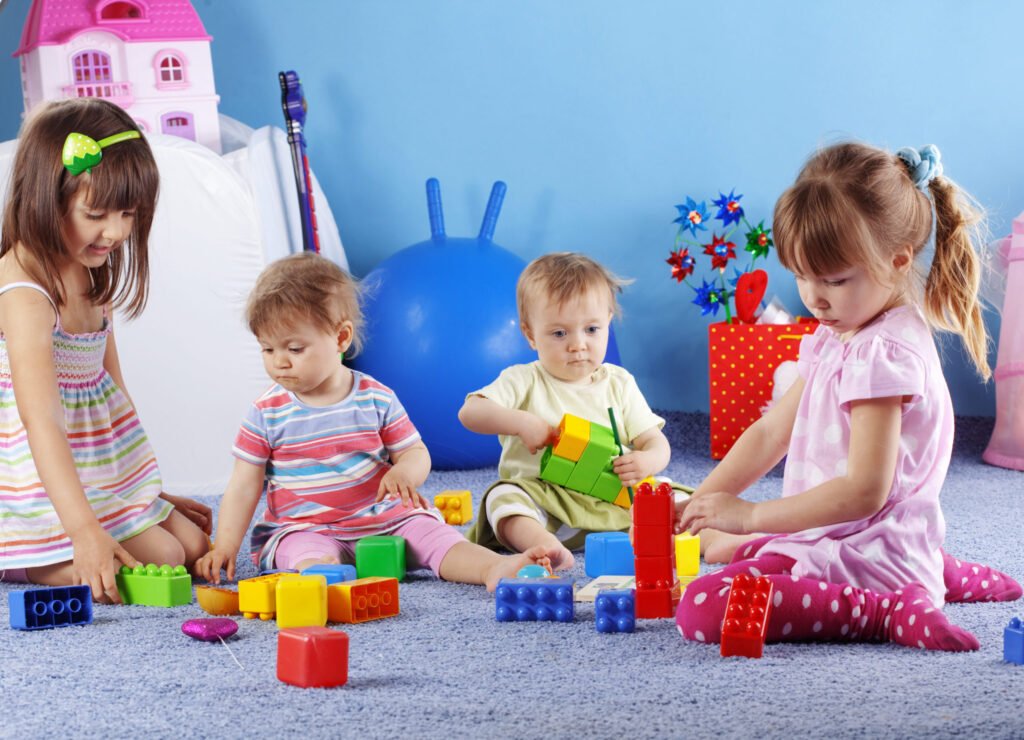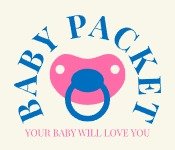Watching your baby grow and develop is one of the most exciting parts of parenting. Every smile, coo, and first step marks a significant moment in your child’s journey through early life. These moments, referred to as “milestones,” are the key developmental stages every baby experiences. Understanding these milestones helps parents track their child’s progress, celebrate each achievement, and, if necessary, identify potential developmental concerns early.

In this guide, we’ll explore what milestones are, why they’re important, and offer an age-based breakdown of key milestones you can expect during your baby’s first year.
What are Baby Milestones?
Baby milestones are developmental achievements that signify the progress a baby is making in various areas of growth—physical, cognitive, social-emotional, and language skills. These milestones occur in predictable sequences, although the exact age at which a baby achieves each milestone can vary slightly.
Milestones are categorized into five main domains:
- Physical (Motor) Development: Involves the development of fine (e.g., grasping objects) and gross (e.g., crawling, walking) motor skills.
- Cognitive Development: Involves thinking, learning, and problem-solving abilities.
- Social and Emotional Development: Involves interaction with others, forming relationships, and emotional regulation.
- Communication and Language Development: Involves understanding, producing language, and developing verbal and non-verbal communication skills.
- Sensory Development: Involves how babies process and respond to sensory stimuli such as sounds, sights, and touch.
Why are Milestones Important?
Understanding your baby’s milestones helps in several ways:
- Tracking Progress: Milestones serve as benchmarks for your baby’s development, offering insight into how well they’re progressing compared to typical expectations.
- Identifying Delays: Early identification of developmental delays can be crucial. The sooner delays are spotted, the quicker professionals can intervene with support and therapy if needed.
- Providing Parental Guidance: Knowing what to expect at each stage can help you support and encourage your child in a way that fosters healthy development.
- Celebrating Achievements: Milestones provide opportunities to celebrate and enjoy your baby’s progress, whether it’s their first smile or their first step.
Key Baby Milestones by Age
1. Newborn to 3 Months
At this stage, babies are adjusting to the world outside the womb. Their movements are mostly reflexive, but they’re rapidly developing key skills.
- Physical Development: Newborns have little head control, but by the end of three months, they’ll likely be able to lift their head when placed on their stomach. They may also start to grasp objects and bring their hands to their mouth.
- Cognitive Development: Babies begin to recognize familiar voices, especially those of their parents. Their attention span is still short, but they will start to look at objects and track moving items with their eyes.
- Social and Emotional Development: Smiling begins, especially in response to familiar faces. Babies start to mimic facial expressions, laying the foundation for social interaction.
- Communication and Language Development: Expect to hear coos and gurgles. Babies begin experimenting with sounds, laying the foundation for speech development.
2. 4 to 6 Months
This period marks the beginning of more active exploration and interaction with their environment.
- Physical Development: Babies gain more control of their bodies, and many can roll over by six months. Some may even start sitting with support. They are becoming more adept at reaching for and grasping objects.
- Cognitive Development: Babies begin to explore objects with their hands and mouths, learning about texture, size, and shape. They also start to recognize familiar people and may respond to their name.
- Social and Emotional Development: By six months, many babies will start to show an interest in playing and interacting with others. Peekaboo and other games become popular.
- Communication and Language Development: Babbling becomes more varied, and babies may start to mimic sounds they hear. They can also express their emotions more clearly, with laughter or fussing.
3. 7 to 9 Months
During these months, babies often become more mobile and begin developing a stronger sense of independence.
- Physical Development: Most babies can sit without support by now and might start crawling. Some may even pull themselves up to stand. Their hand-eye coordination improves, allowing them to pick up small objects using a pincer grasp (thumb and forefinger).
- Cognitive Development: Babies are developing a better understanding of object permanence—the idea that objects continue to exist even when out of sight. They enjoy playing with toys that involve hiding and finding objects.
- Social and Emotional Development: Separation anxiety may appear as babies become more attached to their caregivers. They begin to show preferences for certain people and toys.
- Communication and Language Development: Babies start to understand simple words like “no” and “bye-bye.” They may also respond to their name and start to use basic gestures like waving.
4. 10 to 12 Months
By the first birthday, babies are becoming more independent and interactive.
- Physical Development: Many babies begin standing and might even take their first steps. Their fine motor skills continue to improve, allowing them to feed themselves finger foods and manipulate small objects.
- Cognitive Development: Problem-solving skills advance. Babies will experiment with cause and effect, such as dropping a toy to see what happens. They may also begin imitating actions they observe from others.
- Social and Emotional Development: Babies start to show a wider range of emotions, including affection, frustration, and joy. They also engage in more complex social games and may show a desire to share their experiences with others.
- Communication and Language Development: Some babies will start to say simple words like “mama” and “dada,” and their babbling starts to resemble speech patterns. They also follow simple instructions like “come here.”
What if My Baby is Behind?
It’s important to remember that all babies develop at their own pace. There is a wide range of “normal” when it comes to milestones, and a slight delay in one area doesn’t necessarily indicate a problem. However, if your baby consistently lags behind in several areas or shows signs of regression (losing previously acquired skills), it’s wise to consult your pediatrician. Early intervention can make a significant difference.
Encouraging Development at Each Stage
Parents can play an active role in encouraging their baby’s development by providing a supportive and stimulating environment:
- Talk and Sing to Your Baby: Even before they can understand words, your baby is learning about language and communication through your voice.
- Play Interactive Games: Games like peekaboo, singing songs, and playing with age-appropriate toys stimulate cognitive and social development.
- Provide Opportunities for Movement: Give your baby plenty of tummy time and allow them to practice reaching, rolling, and crawling.
- Offer Sensory Stimulation: Expose your baby to different textures, sounds, and sights to engage their senses.
Conclusion
Baby milestones provide a fascinating glimpse into your child’s development. While they offer useful guidelines for tracking progress, remember that every baby is unique. By staying informed, offering support, and seeking help if needed, you can ensure your baby is on the right path to achieving their developmental potential. Celebrate every small success and enjoy the incredible journey of watching your little one grow!
